What is an Artificial Intelligence Assistant and What are its Applications?
![]()
#Artificial_Intelligence_Assistant is a software or system based on #Artificial_Intelligence that helps users perform various tasks.
These tasks can include answering questions, providing suggestions, performing calculations, generating content, and managing schedules.
Artificial Intelligence allows these assistants to learn from data, recognize patterns, and make intelligent decisions.
The applications of Artificial Intelligence Assistants are very broad.
In business, they can be used in customer support, marketing, sales, and human resources departments.
In personal life, they can be used as a personal assistant for time management, planning, and task reminders.
Also, in the fields of education and research, Artificial Intelligence Assistants can help students and researchers find information, analyze data, and generate content.
In other words, Artificial Intelligence Assistants are powerful tools that can increase productivity and efficiency in many areas.
Generally, Artificial Intelligence Assistants try to perform tasks faster and more intelligently by imitating the abilities of a human assistant, which helps users save time and perform their tasks with greater accuracy.
Did you know that a weak company website costs you many opportunities daily? Solve this problem forever with professional corporate website design by Rasaweb!
✅ Creating a powerful and reliable image of your brand
✅ Targeted attraction of new customers and increased sales
⚡ [Get a free website design consultation]
Types of Artificial Intelligence Assistants Available
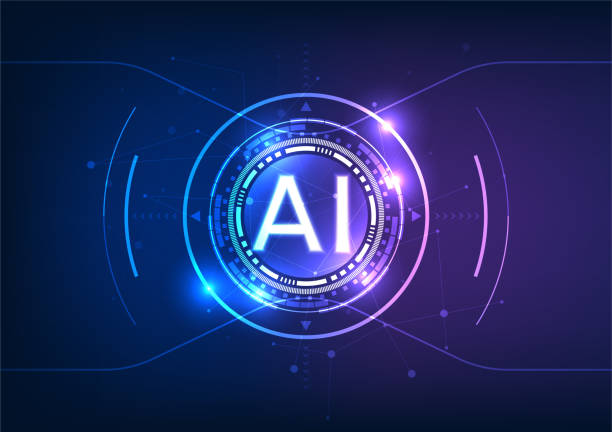
Artificial Intelligence Assistants come in various types, each designed for specific purposes.
Some common types include:
1.
Voice Assistants: These assistants interact with users through voice recognition and Natural Language Processing (NLP).
Examples of this type of assistant include Apple’s Siri, Google Assistant, and Amazon’s Alexa.
Users can ask questions, play music, set alarms, and perform other tasks through voice commands.
Voice-based Artificial Intelligence Assistants are very popular due to their ease of use and quick access.
2.
Chatbots: Chatbots are computer programs designed to simulate conversation with humans.
They are commonly used on websites and messaging apps to answer customer questions, provide support, and take orders.
Artificial Intelligence Assistants in the form of chatbots can be available 24/7 to answer frequently asked questions from users.
3.
Virtual Assistants: These assistants offer a combination of voice assistant and chatbot capabilities.
They can interact with users through voice, text, or a graphical user interface.
Virtual assistants are typically used for more complex tasks such as project management, travel planning, and financial management.
Artificial Intelligence Assistants as virtual assistants can help organize personal and work affairs.
4.
Organizational Assistants: These assistants are specifically designed for use in organizations and companies.
They can help employees perform daily tasks, find information, and collaborate with colleagues.
Organizational Artificial Intelligence Assistants can help improve productivity and reduce costs in the organization.
Important Criteria for Choosing a Suitable Artificial Intelligence Assistant
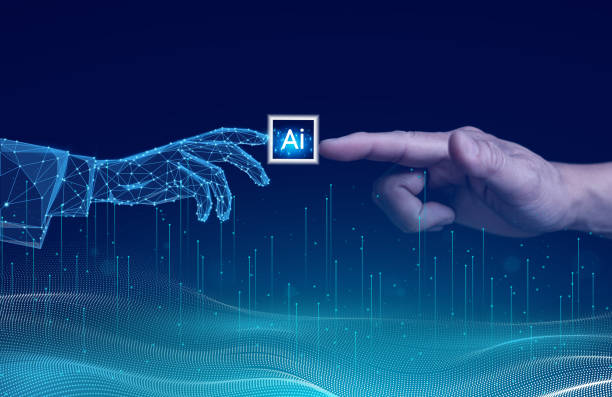
Choosing the right Artificial Intelligence Assistant depends on your needs and goals.
Some important criteria to consider include:
1.
Capabilities and Features: The Artificial Intelligence Assistant should offer capabilities and features that match your needs.
For example, if you are looking for an assistant to answer customer questions, you should ensure that the assistant has Natural Language Processing capabilities and can answer complex questions.
2.
Ease of Use: The Artificial Intelligence Assistant should be easy to use and user-friendly.
The user interface should be simple and intuitive, and users should be able to interact with the assistant easily.
3.
Customization: The Artificial Intelligence Assistant should be customizable so you can configure it to meet your specific needs.
For example, you should be able to change the assistant’s name, voice, and appearance.
4.
Security and Privacy: The Artificial Intelligence Assistant should be highly secure and protect your information.
You should ensure that the assistant uses strong security protocols and has a transparent privacy policy.
5.
Cost: Artificial Intelligence Assistants are offered at different prices, and you should compare this cost with your budget when purchasing.
6.
Support: The provider of the Artificial Intelligence Assistant should provide adequate technical support so that you can easily contact them and resolve your issue if any problems arise.
| Criterion | Description |
|---|---|
| Capabilities and Features | Checking the features suitable for the needs |
| Ease of Use | Easy and user-friendly interface |
| Customization | Ability to configure the assistant according to specific needs |
| Security and Privacy | Protecting user information |
| Cost | Fits within the budget |
| Support | Providing appropriate technical support |
Setting up and Configuring the Artificial Intelligence Assistant
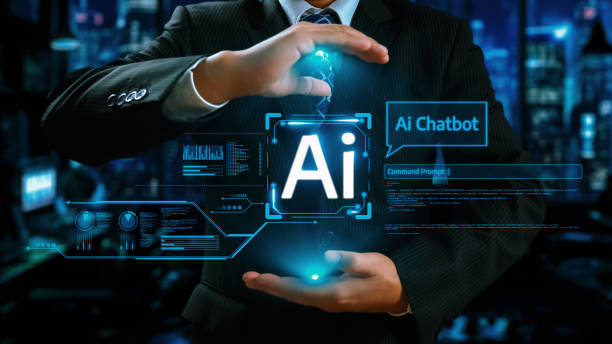
After selecting the right Artificial Intelligence Assistant, you need to set it up and configure it.
The setup and configuration steps vary depending on the type of assistant, but usually include the following steps:
1.
Installing the Software or Application: If the Artificial Intelligence Assistant is a software or application, you need to install it on your device.
2.
Creating an Account: To use some Artificial Intelligence Assistants, you need to create an account.
3.
Configuring Settings: After creating an account, you need to configure the settings of the Artificial Intelligence Assistant.
These settings include language, voice, time zone, and other settings related to the assistant’s performance.
4.
Connecting to Other Services: Some Artificial Intelligence Assistants can connect to other services such as calendar, email, and social networks.
By connecting to these services, the assistant can provide you with more information and perform more complex tasks.
5.
Training the Assistant: For the Artificial Intelligence Assistant to answer your questions correctly and perform your tasks, you need to train it.
This training usually involves providing examples of your desired questions and commands.
Artificial Intelligence Training helps the assistant to better understand your needs.
Is your current e-commerce website design not delivering the expected sales?
Rasaweb specializes in professional e-commerce website design!
✅ Attractive and user-friendly website designed to increase sales
✅ High speed and security for an ideal shopping experience⚡ Get a free online store design consultation with Rasaweb!
How to Use the Artificial Intelligence Assistant Optimally
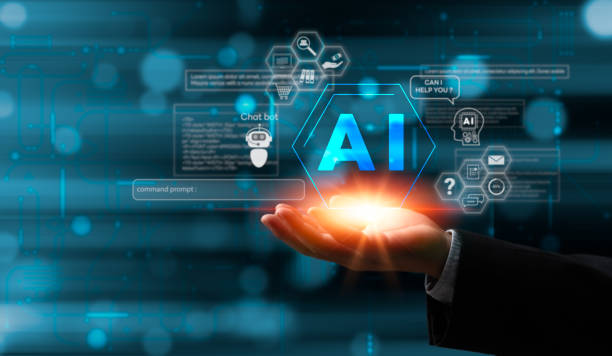
To use the Artificial Intelligence Assistant optimally, you need to be familiar with how to interact with it correctly.
Some important tips include:
1.
Using Clear and Concise Language: When talking to the Artificial Intelligence Assistant, use clear and concise language.
Avoid complex and ambiguous terms.
2.
Providing Precise Instructions: Provide your instructions precisely and clearly.
The more precise your instructions, the better the assistant can understand them and perform them correctly.
3.
Using Keywords: When searching for information, use relevant keywords.
This helps the assistant find more accurate results.
4.
Providing Feedback: If the Artificial Intelligence Assistant does not answer your question correctly or does not perform your task, provide feedback.
This helps the assistant learn from its mistakes and improve its performance.
5.
Trial and Error: To familiarize yourself with the capabilities of the Artificial Intelligence Assistant, test it and play with different commands.
By doing so, you can discover the best ways to use the assistant.
Privacy and Security in Using Artificial Intelligence Assistants

Using the Artificial Intelligence Assistant can raise concerns about privacy and security.
Artificial Intelligence Assistants usually collect a lot of information about users, including personal information, search history, and location data.
This information can be used for various purposes, including targeted advertising, profiling, and monitoring.
To protect your privacy when using the Artificial Intelligence Assistant, you can take the following steps:
1.
Review the Privacy Policy: Before using the Artificial Intelligence Assistant, carefully read its privacy policy.
Make sure you agree with how the assistant collects, uses, and shares your information.
2.
Adjust Privacy Settings: Many Artificial Intelligence Assistants allow you to adjust your privacy settings.
These settings allow you to control what information is collected and how it is used.
3.
Use Strong Passwords: For your user accounts on the Artificial Intelligence Assistant, use strong and unique passwords.
Avoid using the same password for multiple accounts.
4.
Care for Personal Information: When talking to the Artificial Intelligence Assistant, avoid providing sensitive personal information.
This information includes credit card numbers, social security numbers, and medical information.
5.
Software Updates: Regularly update your Artificial Intelligence Assistant software.
Updates typically include security patches that protect you from security threats.
The Future of Artificial Intelligence Assistants
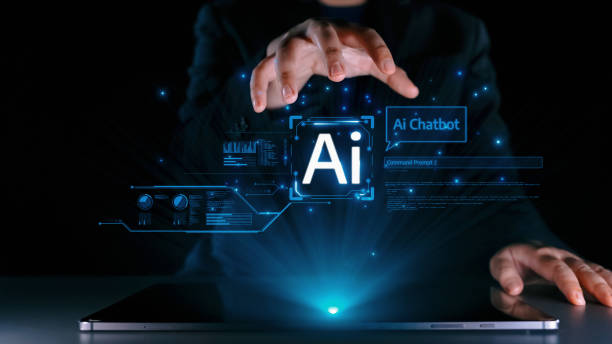
The future of Artificial Intelligence Assistants looks very bright.
With the advancement of artificial intelligence technologies, these assistants are becoming smarter, more efficient, and more powerful day by day.
In the future, we can expect Artificial Intelligence Assistants to play a more important role in our lives and help us with various tasks.
Some key trends that we will see in the future of the Artificial Intelligence Assistant include:
1.
Increased Natural Language Processing Capabilities: Artificial Intelligence Assistants will be able to understand natural language more accurately and completely in the future.
This will allow them to interact with users more naturally and effectively.
2.
Development of Machine Learning Capabilities: Artificial Intelligence Assistants will be able to learn from data automatically and improve their performance in the future.
This will allow them to constantly adapt to users’ needs.
3.
Integration with Other Technologies: Artificial Intelligence Assistants will be integrated with other technologies such as the Internet of Things, Augmented Reality, and Virtual Reality in the future.
This integration will allow them to provide new services and experiences to users.
4.
Increased Use in Various Industries: Artificial Intelligence Assistants will be used in various industries such as healthcare, education, transportation, and manufacturing in the future.
This will help improve productivity, reduce costs, and provide better services to customers.
| Trend | Description |
|---|---|
| Increased Natural Language Processing Capabilities | More accurate and complete understanding of natural language |
| Development of Machine Learning Capabilities | Automated learning from data and performance improvement |
| Integration with Other Technologies | Integration with the Internet of Things, Augmented Reality, and Virtual Reality |
| Increased Use in Various Industries | Use in healthcare, education, transportation, and manufacturing |
Comparison of Artificial Intelligence Assistants with Human Assistants
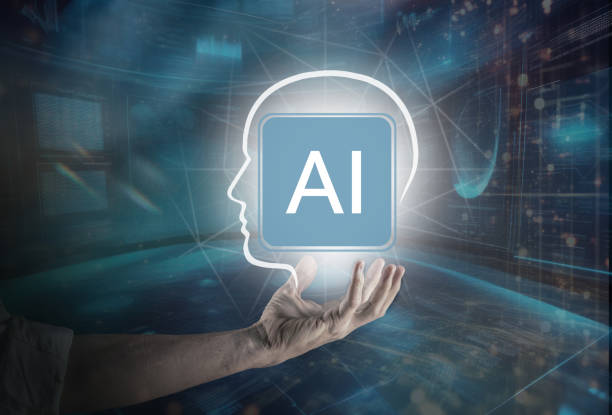
Artificial Intelligence Assistants and human assistants can both help users with various tasks, but there are key differences between them.
1.
Accessibility: Artificial Intelligence Assistants are typically available 24 hours a day, 7 days a week.
While human assistants are usually only available during business hours.
2.
Cost: Using an Artificial Intelligence Assistant is usually cheaper than hiring a human assistant.
This is particularly attractive for small and medium-sized businesses with limited budgets.
3.
Scalability: Artificial Intelligence Assistants can be easily scaled to serve a large number of users.
While hiring and training new human assistants is time-consuming and expensive.
4.
Accuracy: Artificial Intelligence Assistants typically have higher accuracy than human assistants.
They make fewer mistakes and can perform tasks faster.
5.
Empathy: Human assistants are typically more empathetic than Artificial Intelligence Assistants.
They can understand users’ feelings and provide more personal responses.
Are you disappointed with the low conversion rate of your online store? Rasaweb transforms your online store into a powerful tool for attracting and converting customers!
✅ Significantly increase the conversion rate of visitors to buyers
✅ An exceptional user experience to increase customer satisfaction and loyalty⚡ Get a free consultation from Rasaweb!
Impact of Artificial Intelligence Assistants on Jobs
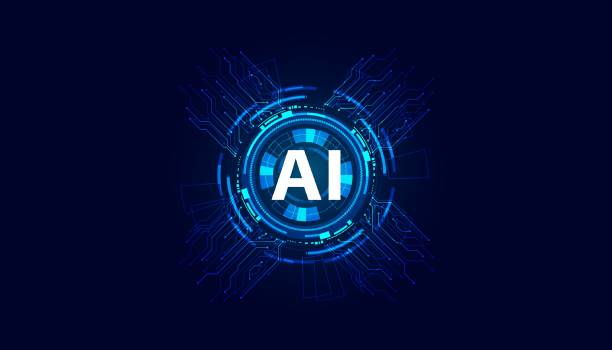
Using an Artificial Intelligence Assistant can have a significant impact on jobs.
Some jobs may be completely replaced by Artificial Intelligence Assistants, while other jobs may change and require new skills.
Jobs most at risk of being replaced by Artificial Intelligence Assistants include:
1.
Repetitive and Routine Jobs: Jobs that involve performing repetitive and routine tasks, such as data entry, order processing, and answering simple questions, are most at risk of being replaced by Artificial Intelligence Assistants.
2.
Data-Based Jobs: Jobs that involve analyzing data and providing reports, such as financial analysts, marketers, and researchers, are also at risk of being replaced by Artificial Intelligence Assistants.
Jobs that are less at risk of being replaced by Artificial Intelligence Assistants include:
1.
Creative Jobs: Jobs that involve creativity, innovation, and problem-solving, such as artists, writers, and designers, are less at risk of being replaced by Artificial Intelligence Assistants.
2.
Human Relationship-Based Jobs: Jobs that involve interacting with people and building relationships, such as teachers, counselors, and doctors, are also less at risk of being replaced by Artificial Intelligence Assistants.
Challenges and Limitations of Artificial Intelligence Assistants
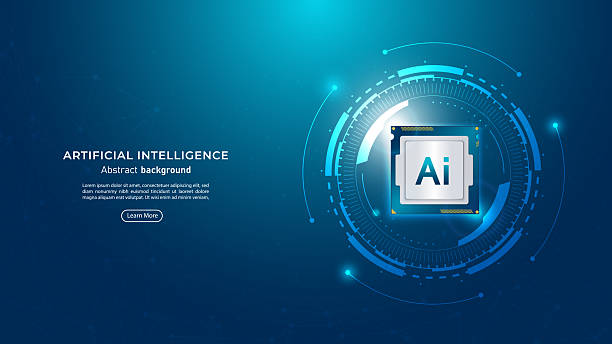
Despite the numerous advantages, Artificial Intelligence Assistants still face challenges and limitations.
Some of these challenges include:
1.
Limited Understanding of Natural Language: Artificial Intelligence Assistants still face limitations in understanding natural language.
They may have difficulty understanding complex sentences, colloquial terms, and jokes.
2.
Lack of Common Sense: Artificial Intelligence Assistants lack common sense.
They may have difficulty understanding social situations and providing appropriate responses.
3.
Data Biases: Artificial Intelligence Assistants are trained on data that may contain biases.
These biases can lead to unfair and discriminatory decisions.
4.
Privacy Concerns: Using an Artificial Intelligence Assistant can raise privacy concerns.
Artificial Intelligence Assistants usually collect a lot of information about users that can be used for various purposes.
Frequently Asked Questions
| Row | Question | Answer |
|---|---|---|
| 1 | What is an Artificial Intelligence Assistant? | It is a software program that performs tasks or services for an individual based on verbal or textual commands. |
| 2 | Name a few examples of Artificial Intelligence Assistants? | Siri, Google Assistant, Alexa, and Cortana. |
| 3 | How do Artificial Intelligence Assistants work? | They use Natural Language Processing (NLP), machine learning, and artificial intelligence to understand user input and provide an answer or perform the task. |
| 4 | What can an Artificial Intelligence Assistant do? | Answer questions, set reminders, play music, send messages, manage calendars, and control smart devices. |
| 5 | What are the benefits of using an Artificial Intelligence Assistant? | Increased productivity, quick access to information, assistance for people with special needs, and simplification of everyday tasks. |
| 6 | Are the responses of Artificial Intelligence Assistants always accurate? | No, they may sometimes make mistakes or provide outdated information, especially on complex or sensitive topics. |
| 7 | What are the privacy concerns about Artificial Intelligence Assistants? | Recording and storing audio/text data, the possibility of unauthorized access, and the use of data for advertising purposes. |
| 8 | What will the future of Artificial Intelligence Assistants be like? | Becoming smarter, more integrated with devices and platforms, deeper understanding of emotions, and the ability to perform more complex tasks. |
| 9 | Do Artificial Intelligence Assistants learn from users? | Yes, through machine learning and data collection from previous interactions to improve performance and personalize responses. |
| 10 | What is the difference between an Artificial Intelligence Assistant and a Chatbot? | Artificial Intelligence Assistants have the ability to perform a wider range of tasks beyond conversation and are often integrated with the operating system or hardware, while Chatbots are mainly designed for conversation or answering specific questions. |
And other services of Rasa Web Advertising Agency in the field of advertising
Intelligent Digital Branding: A combination of creativity and technology to increase sales through user experience customization.
Intelligent SEO: Professional optimization for campaign management using intelligent data analysis.
Intelligent Marketplace: A professional solution to improve SEO ranking with a focus on user experience customization.
Intelligent Link Building: A dedicated service to grow user engagement based on key page optimization.
Intelligent Marketplace: A professional solution to improve SEO ranking with a focus on proprietary programming.
And over a hundred other services in the field of Internet advertising, advertising consulting, and organizational solutions
Internet Advertising | Advertising Strategy | Advertorial Reporting
Resources
Artificial intelligence tools to help businesses
,What is artificial intelligence and what are its uses?
,Best AI tools in 2024
,Fundamentals of Machine Learning Training
? To improve your business position in the digital world and reach the peak of success, Rasaweb Digital Marketing Agency offers comprehensive and effective solutions. From responsive website design to search engine optimization, be seen professionally with us.
📍 Tehran, Mirdamad Street, next to the Central Bank, South Kazerun Alley, Ramin Alley, No. 6



